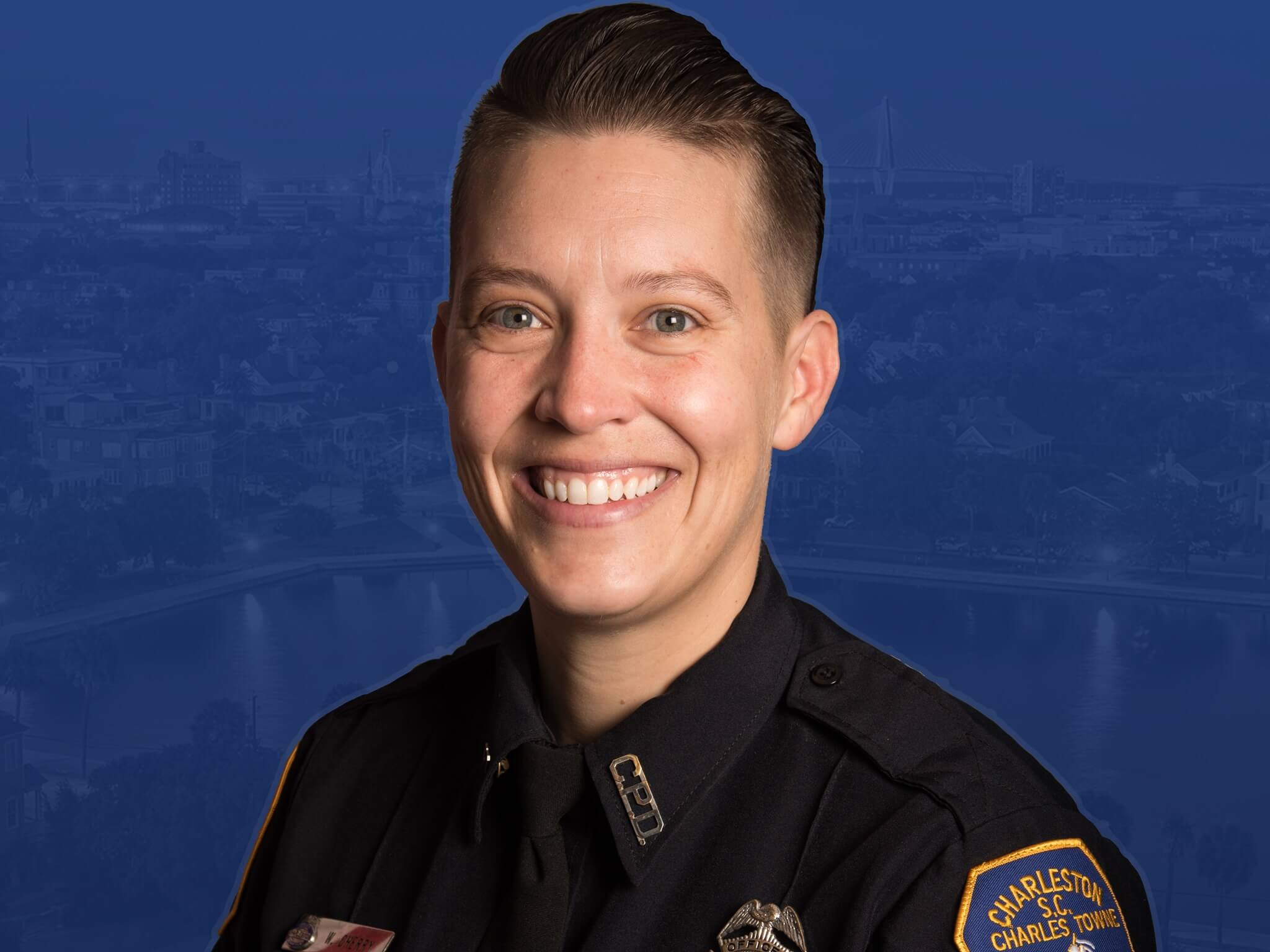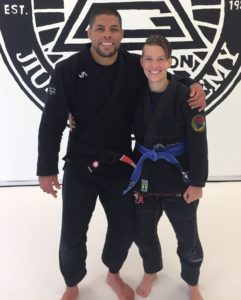Officer Terry Cherry
Charleston Police Department
Charleston, South Carolina

Why did you become a police officer?
I became a police officer to make a positive social impact and have a career of purpose. I originally started my career in business. A friend in college had given me a book on social entrepreneurship, and I thought I might be able to make an impact in the world that way. But after pursuing that for eight years, I felt like my work wasn’t rewarding, and I wasn’t making a positive change or being effective. I went into police work because I wanted to have a meaningful legacy and have a journey in life that was something I could be proud of.
I can see how I make an impact in people’s lives as an officer with the Charleston Police Department (CPD). Sometimes I even get messages from community members directly, telling me how much they appreciated my help during their cases. Whenever someone reaches out to say thank you, and to say that my being on the scene helped them when they were going through a hard time, it reminds me of why I became an officer in the first place.
What motivates you to succeed?
As a police officer, I am fueled by my desire to fight for social equality of all kinds—racial equality, gender equality, and LGBTQ equality—and to innovate the policing profession to change for the better. Sometimes people lack the creativity to see something other than what it is now. But I like to imagine what a different world looks like, especially when it comes to policing, and figure out the steps we need to take to create that world. In my role as a recruiter with CPD, I think about this a lot, because hiring and recruiting diverse candidates and training them in a new way will help us reimagine policing.
This also extends to my life outside of work. I’m highly disciplined and always try to improve myself, especially by learning from others. I also put a lot of value in working toward my goals. For example, I’ve been training to get a black belt in jiu jitsu, and I love it because it teaches me a lot about life. Jiu jitsu punishes you every day because it’s so physically and mentally demanding, but it also requires you to grow.
 Officer Cherry and Andre Galvao, her jiu jitsu hero.
Officer Cherry and Andre Galvao, her jiu jitsu hero.
What challenges have you faced as a woman officer?
Women were intentionally left out of American policing until the 1970s and have had to struggle with institutionalized misogyny ever since. I have faced the challenge of pioneering new ideas in law enforcement while fighting female stereotypes and prejudices. This challenge is magnified because I’m not only an openly gay woman working in policing, but one who wishes to drive LGBT visibility and equality forward in her work. My identity and my values add extra obstacles for me to overcome as an officer.
What’s your most memorable moment on the job?
My most memorable moment on the job was when I was sworn in as a police officer with the Charleston Police Department, because it was the result of almost two years of constant hard work.
What challenges have you faced?
It wasn’t an easy road for me to become an officer, and earning my badge was never a guarantee. When I decided that this was what I wanted, I enrolled at the San Diego Police Academy, which is six months in length and extremely rigorous, as an “unsponsored trainee.” In other words, I didn’t have a police department that was sponsoring me and would hire me at the end of the process—I paid my own way, thanks to my parents’ support. As I went through the academy, I was fortunate to have amazing mentors like Officer Matt Weathersby (ret.) and Detective Russ Bristol (ret.) take the time to encourage the potential they saw in me.
When I graduated from the San Diego police academy, I was near the top of the class. However, I couldn’t seem to get hired in California—I spent a year searching for a job around the state. After a while, other people told me to just give up. It felt like the world kept telling me I was too different and did not fit the police officer mold. But I was determined to do it. So, I moved back to North Carolina after that year of looking for a job, and was recruited by Lieutenant Tom Adams (ret.), who used to run the recruitment program at CPD. I’m so grateful to him for that, and for mentoring me and advocating for me later on, to eventually be chosen to fill his position as the recruiter. I’m also thankful for Chantel Johnson, my current colleague and friend. At the time I was hired, Chantel worked in the Personnel office for hiring at CPD. She not only helped me through the application process, with kindness and exceptional customer service, but she also was the one who sent the letter saying I had been hired! I’ll never forget that moment.
All of the people who invested their time and effort in me helped pave the way for when I was sworn in. When I finally held my badge, I thought of everyone who had supported me on this journey. I made a vow that day to pay them back by being the best officer I could, mentoring others, and succeeding in my career. I want to pay it forward, especially when it comes to supporting other officers who may have faced barriers to joining the force because of their gender, race or sexuality—and making sure they know that there’s space for them in policing.
How we’re changing policing
The 30×30 Initiative is a coalition of police leaders, researchers, and professional organizations committed to advancing and supporting the representation, experiences, and well-being of women at all levels of law enforcement, both in the U.S. and beyond.
Research shows that women play a crucial role in building community trust, de-escalating conflict, and improving public safety outcomes, with evidence linked to reduced use of force and enhanced relationships with the communities they serve. However, women represent less than 14% of sworn officers and 20% of recruits in state and local law enforcement agencies. Additionally, about 40% of the approximately 18,000 law enforcement agencies in the U.S. have no full-time women officers (Source: Bureau of Justice Statistics).
We are collaborating with hundreds of agencies to make law enforcement a profession where qualified women who are drawn to it feel welcomed and supported while ensuring agencies address their unique needs and foster their success.